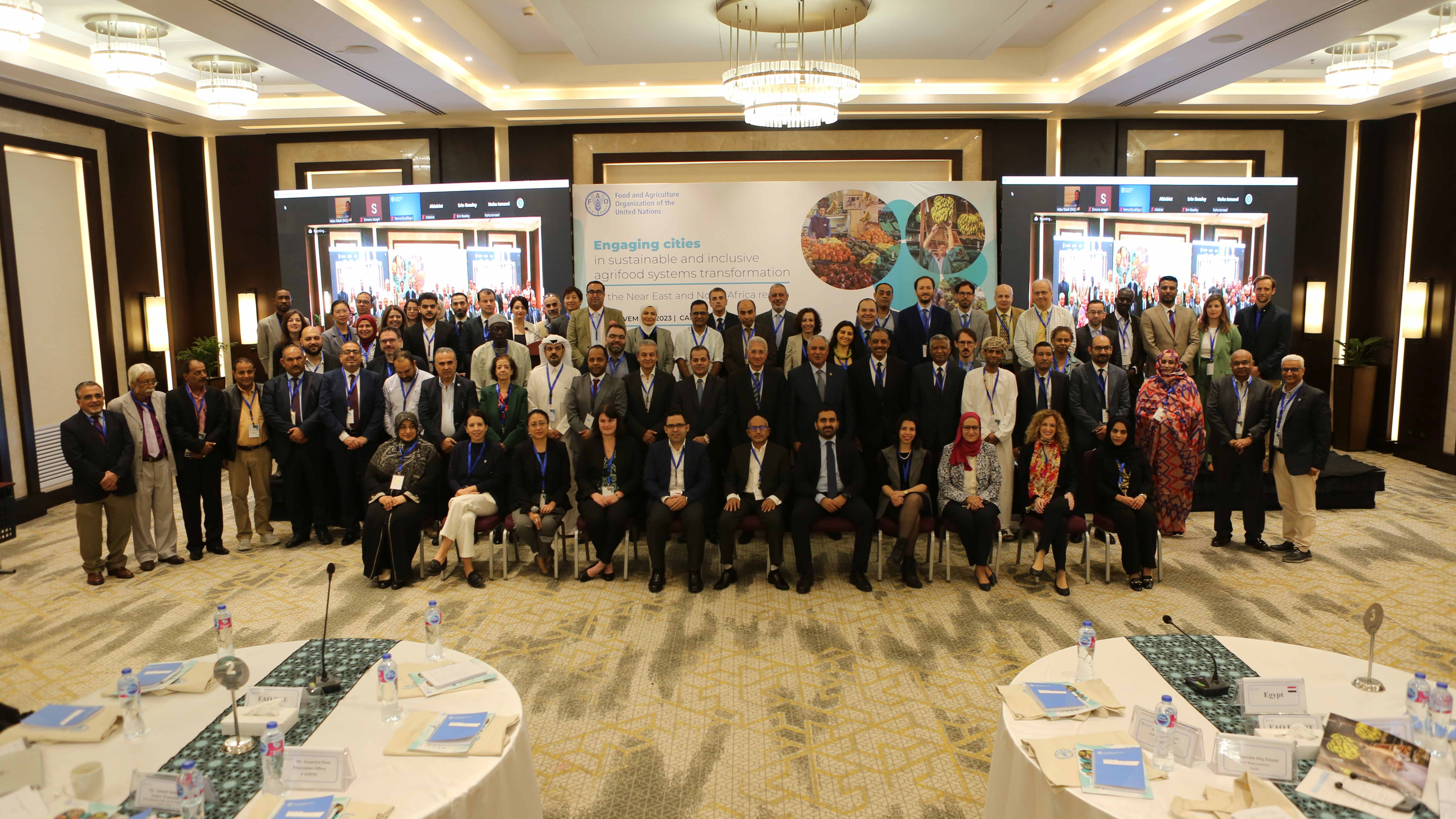FAO calls for transforming urban food systems in the Near East and North Africa region
A regional event aims at leveraging urban and local agrifood systems for sustainable and inclusive transformation

FAO calls for transforming urban food systems in the Near East and North Africa region
©FAO
The Food and Agriculture Organization of the United Nations (FAO) organized a two-day regional event named “Engaging cities in sustainable and inclusive agrifood systems transformation in the Near East and North Africa region”. The event is part of FAO’s efforts in the region to encourage knowledge and experience exchange among stakeholders and promote policy and effective actions towards development of sustainable, inclusive and resilient agrifood systems in the cities.
Impacts of the rapid urbanization on agrifood systems
Similar to global trend, the Near East and North Africa (NENA) region is rapidly urbanizing, with over 450 million people expected to live in the towns and cities by 2050. Increasing number of urban dwellers brings about gradual changes in dietary patterns with tendency of consuming more energy-dense and processed foods, complex supply chain and market linkages, a decline in rural food production among others, which can significantly affect food availability and price, thus food security and nutrition in the region. Recognizing these changes, the traditional approaches to developing agrifood systems policies and strategies must adapt to address the complexities across urban and rural contexts. This was the message today at the regional event organized by FAO, which aims to promote the role of cities and local governments, highlighting the most pressing challenges that cities in the NENA region are facing in achieving food security and nutrition and access to healthy diets from sustainable agrifood systems.
“Urbanization has been increasing in our region, with around 63 percent of the current population living in urban areas and projected to grow to 73 percent by 2050,” said Abdulhakim Elwaer, FAO’s Assistant Director-General and Regional Representative for the Near East and North Africa. “This growing trend can result in increased poverty, inequality, food insecurity and all forms of malnutrition,” Elwaer added.
Engaging cities in sustainable and inclusive agrifood systems transformation
Today, cities are the consumption hubs in the NENA region but the ability of the countries to sustainably respond to increased food demand in urban areas is affected by scarcity of natural resources, climate change and conflict.
37 percent of the region’s population already lives in large metropolitan areas and over 50 percent lives in smaller urban and rural cities and towns, which typically receive less investment in infrastructure and far less attention from policy and research.
“In this context, it is important to recognize the common and diverse challenges that cities in the region are facing. Small and intermediary towns have enormous potential for job and income generation for youth and women and to contribute to nutrition and food security. This means that in addition to national governments, sub-national governments and local authorities can play a key role in designing and implementing policies that better reflect the needs and priorities of the citizens,” Elwaer highlighted.
FAO's initiatives
FAO is increasingly prioritizing the urban food systems by supporting local and national institutions to integrate food systems in their policies, planning and actions in small, intermediary, and metropolitan cities especially in low and middle-income countries.
The Urban Food Agenda is an FAO flagship initiative to enhance sustainable development, food security and nutrition in urban and peri-urban areas, and nearby rural spaces. It consists of a vast range of policies, programmes and initiatives developed and implemented in partnership with different stakeholders: civil society, academia, UN & International agencies, City Networks and relevant public and private bodies and entities.
FAO is committed to ensuring the outcomes and success of the 2021 UN Food Systems Summit, which saw the creation of a Coalition on Sustainable and Inclusive Urban Food Systems designed to support the transformation of urban food systems.
Developing a shared vision and strengthening partnerships for sustainable urban food systems in NENA
The regional event was an important step towards developing a shared vision and strengthening partnerships for sustainable urban food systems in the NENA region. It called for active engagement and involvement of stakeholders in bridging multiple levels of agrifood systems governance in countries. Leveraging the power of peer-to-peer learning and sharing experience, the event facilitated exchange on best practices among the cities in the region and selected municipalities of the global north to demonstrate successful cases of sustainable urban food action.
The discussions during the regional event increased understanding of national and city authorities on the mandate and capacity of FAO, UN partners and the global coalition on Urban Food Systems to support cities in their journey towards mainstreaming food systems in their interventions, policies, planning. At the end of the event, key findings, pathways and actions will be shared among participants to develop a roadmap towards sustainable urban food systems, and recommendations for scaling up the partnership mechanisms and action points will be validated by all participants.
